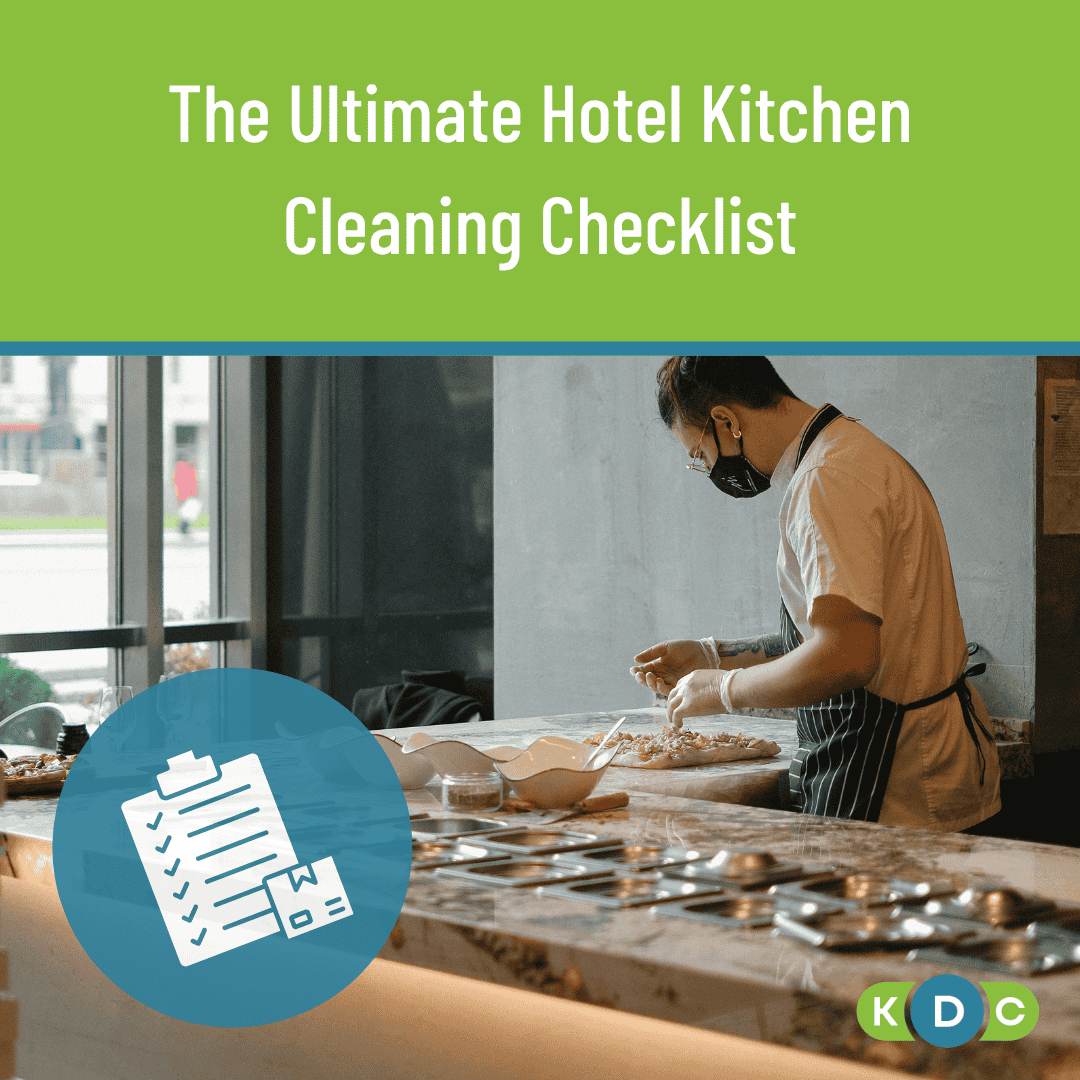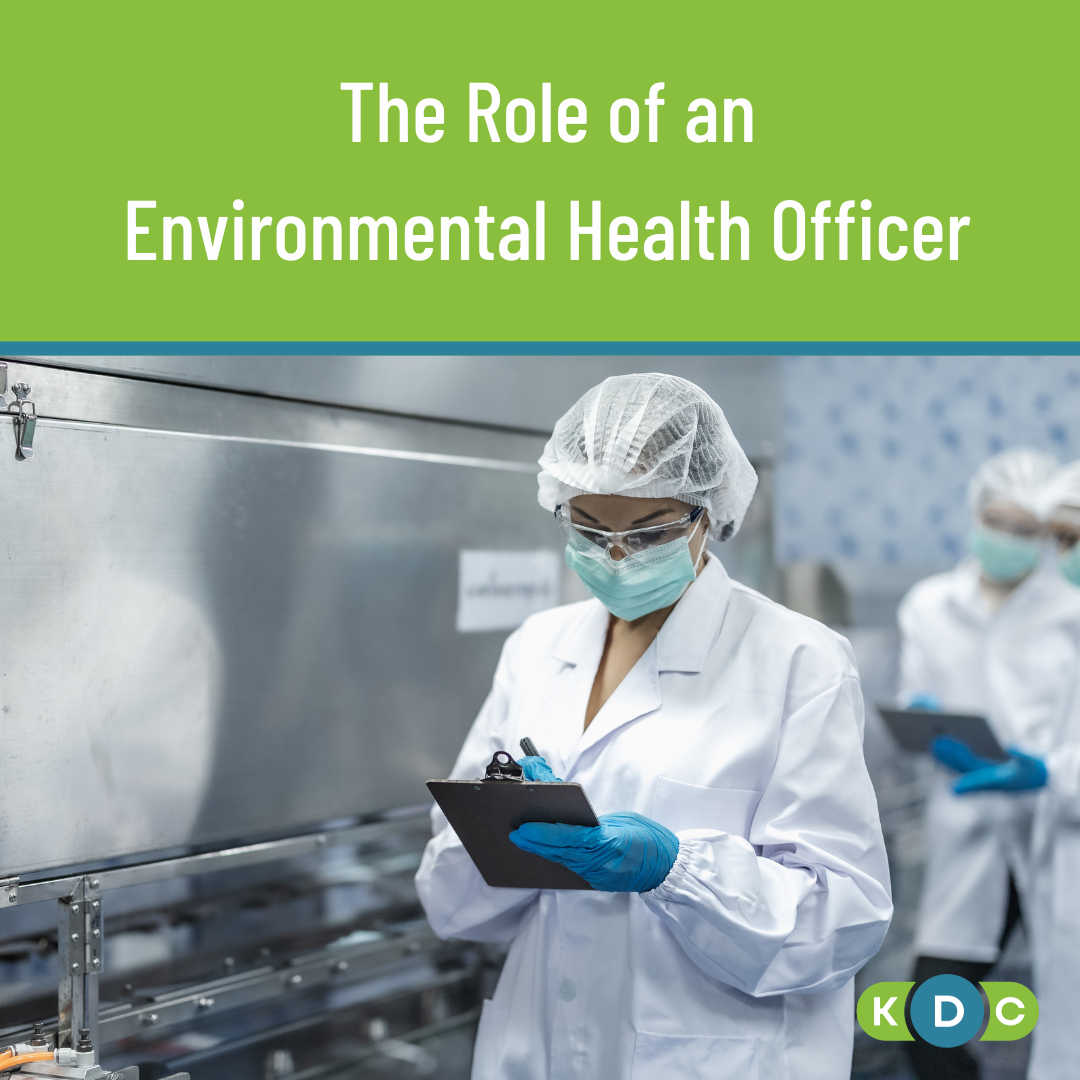The Ultimate Hotel Kitchen Cleaning Checklist
Master hotel kitchen hygiene with our comprehensive cleaning checklist. Daily, weekly and monthly tasks to meet UK food safety standards and regulations.
Never forget that your commercial kitchen is the beating heart of your hotel. It’s where reputations are built and customer trust is earned. A spotless hotel kitchen isn’t just about looking the part; it’s absolutely crucial for maintaining food safety and preventing cross-contamination.
We’ve all seen what happens when things go pear-shaped in a busy kitchen. Daily spills, grease building up faster than orders on a Friday night and staff rushing about during hectic shifts. Before you know it, missed cleaning tasks start piling up like dirty plates in the wash-up area, and that’s when you're asking for trouble with inspections, food safety issues and staff morale taking a proper nosedive.
A hotel kitchen cleaning checklist is your blueprint for consistency. Creating a structured kitchen cleaning schedule ensures no task gets overlooked during busy service periods. In this blog, we’ll break down those cleaning tasks into manageable daily, weekly and monthly routines that’ll protect your customers, keep your team happy and safeguard your reputation. Let’s get to it…
What are the Legal Requirements for Hotel Kitchen Cleaning in the UK?
Running a commercial kitchen in the UK means playing by some pretty strict rules − the sort you can’t bend or ignore.
Running a hotel kitchen? Here’s what you need to know about UK kitchen cleaning standards:
Food Safety Standards come courtesy of the Food Standards Agency (FSA), built around HACCP guidelines. Your kitchen hygiene checklist needs to tick all of these food safety boxes, or you’ll be getting more than just a telling-off from the inspectors.
Health and Safety Executive guidelines cover handling cleaning chemicals safely and maintaining proper ventilation. Nobody wants their kitchen staff getting poorly from dodgy chemicals or dealing with fire risks.
Environmental and fire safety standards require proper waste disposal, grease trap maintenance, and regular equipment checks. All your kit needs to be safety-tested and properly maintained − no cutting corners here.
The whole system revolves around the “4 Cs”: Cooking, Chilling, Cross-contamination and Cleaning. Get these wrong and you’re looking at hygiene improvement notices, prosecution, or even closure. The Food Hygiene Rating system runs from 0 to 5, and anything below a 4 these days has customers backing away from your establishment.
Why is Kitchen Cleaning Important in Hotels?
A well-structured hotel kitchen cleaning checklist is an absolute game-changer for your operations. It’s not just about keeping the health inspector happy, though that’s certainly part of it.
Here’s why getting your cleaning routine sorted pays in the long run:
Staying compliant with health regulations means you’re always inspection-ready. No more frantic scrubbing when you spot the environmental health officer walking through your doors.
Food safety gets a massive boost when you’ve got consistent cleaning routines. Cross-contamination risks disappear, your customers stay healthy and you avoid the absolute nightmare of foodborne illness outbreaks.
Efficiency improves dramatically when your team knows exactly what needs doing and when. Equipment breakdowns become rare, workflows run smoother and your staff can concentrate on simply cooking brilliant food.
Equipment longevity is like giving your kitchen kit regular health check-ups. Proper degreasing and decarbonising not only prevent costly breakdowns but also reduce fire risks.
Customer trust builds naturally when your kitchen sparkles. Word gets around about cleanliness standards and guests feel confident about dining with you. That’s repeat business and positive reviews right there.
What is Included in a Hotel Kitchen Cleaning Checklist?
Essential Daily Cleaning Tasks
Your daily hotel kitchen cleaning tasks are the foundation of everything else. Miss these and you’re building problems for tomorrow.
- Food preparation areas: Wipe down all surfaces, countertops and cutting boards after every service to prevent cross-contamination.
- Cooking equipment: Clean grills, fryers, ovens and stovetops daily; empty grease traps and clean coffee makers, microwaves and meat slicers.
- Dishwashing duties: Wash, rinse and sanitise all dishes, pots and utensils; keep soap dispensers topped up and clean dishwashing areas.
- Storage and refrigeration: Remove expired items, wipe down shelves and handles, sweep storage areas, including walk-in fridges.
- Floors and drains: Sweep and mop to prevent slips; clear drains to avoid blockages, including under beverage dispensers.
- Waste management: Empty bins, sanitise garbage cans and disinfect waste areas to prevent odours and pests.
- Other essentials: Launder towels and uniforms, clean can openers, wipe splashed walls, change grill linings, disinfect door handles and light switches.
Essential Weekly Cleaning Tasks
Your weekly cleaning routine tackles the bigger jobs that daily cleaning can't handle.
- Deep clean cooking equipment: Properly degrease ovens, deep fryers and ventilation systems; move heavy appliances and clean behind them.
- Storage area maintenance: Organise dry storage, check pest traps, wipe down shelving units and sanitise walk-in areas.
- Walls and ceilings: Remove splashes, stains and grease buildup; check for mould or mildew and wipe down light fixtures.
- Drain and pipe maintenance: Use specialist cleaners to prevent clogs and keep water flowing properly.
- Equipment care: Descale dishwashers, clean ice machines and give small appliances like coffee machines and toasters some TLC.
- Inventory management: Check and restock cleaning supplies so you don’t run out mid-task.
Essential Monthly Cleaning Tasks
Monthly tasks are your thorough cleaning sessions that keep everything running smoothly.
- Refrigeration units: Defrost and sanitise internally; check gaskets and seals, clean behind and under larger equipment.
- Ventilation systems: Thoroughly clean exhaust fans and ductwork to reduce fire hazards; replace air filters and clean vents, hoods and light fixtures.
- Plumbing inspections: Catch leaks early and repair faulty fixtures before they cause water damage.
- Equipment calibration: Ensure ovens, thermometers and other appliances are working accurately and efficiently.
- Pest-control reviews: Schedule professional assessments if required; reassess traps and deterrents.
- Comprehensive maintenance: Review food safety procedures, service kitchen equipment, wash walls and ceilings, clean windows.
Quarterly Cleaning Tasks
Every three months, conduct thorough deep cleans of all kitchen appliances and clean vents and filters in extraction hoods.
Use this time for staff training refreshers on cleaning protocols and reviewing your cleaning checklist. Annual checks of fire extinguishers and gas pilot lights should also be scheduled.
DOWNLOAD our easy-print commercial kitchen cleaning checklist for hotels.
Essential Tools and Products: What Cleaning Products Are Safe for Hotel Kitchens?
Getting your products cleaning equipment right is crucial for both effectiveness and safety.
Cleaning products should always be food-safe sanitisers, degreasers and descaling agents. Stick to non-corrosive, food-safe and environmentally friendly chemicals. Avoid corrosive chemicals, detergents, bleach, or chlorine-based disinfectants as they can damage equipment and pose health risks.
Equipment and tools include microfibre cloths, scrub brushes, heavy-duty mops and buckets, and industrial vacuum cleaners. A colour-coded cleaning system prevents cross-contamination (red for toilets, yellow for kitchens, etc.).
Protective gear is non-negotiable. Non-latex gloves, aprons and safety goggles keep your staff safe while they work.
How to Make Sure Your Staff Follows the Cleaning Checklist
Having a brilliant cleaning checklist is only half the battle. Getting your team to follow it consistently is where the real work begins. In our experience, the following tips can help:
Training and clear instructions are your starting point. Walk your team through each step of the cleaning procedure, explaining not just how to do tasks but why they matter. Show them how proper cleaning prevents cross-contamination and protects customers. Hands-on demonstrations work brilliantly for complex procedures like degreasing ovens.
Digital tools can transform accountability. Platforms like Operandio streamline checklists by assigning tasks, sending reminders and tracking progress in real-time. These systems create automatic logs for audits and can send alerts for critical tasks.
Clear roles and responsibilities prevent confusion. Divide cleaning duties among team members, making each person accountable for specific tasks or zones. Rotate responsibilities to keep things fair and ensure everyone gains experience.
Regular monitoring through spot checks ensures tasks are completed properly. Provide immediate feedback focusing on improvement and always acknowledge good work when you see it.
Clean-as-you-go policies make major cleaning sessions much easier. Deal with spills and hazards immediately rather than leaving them for later.
Personal hygiene standards must be maintained by all food handlers. Emphasise thorough handwashing, especially after handling raw food, before preparing food and after breaks. Staff should wear clean clothes, cover cuts, tie back long hair and report any symptoms of food poisoning immediately.
Commercial Kitchen Deep Cleaning: Do’s and Don’ts
All commercial kitchens need deep cleaning every 3 to 6 months. This intensive process goes far beyond your regular cleaning routines.
DO:
- Degrease all surfaces before disinfection – food and grease residue harbour bacteria.
- Decarbonise all appliances, especially cooking equipment, to reduce fire risk.
- Disinfect properly after degreasing; steam cleaners work brilliantly for food preparation surfaces.
- Access high-level areas like ceilings and light fixtures where dust and bacteria accumulate.
- Use specialised equipment like high-pressure washers and steam cleaners for maximum effectiveness.
- Clean refrigeration units thoroughly, including defrosting and removing all residue.
DON'T:
- Use corrosive chemicals that can damage surfaces and equipment.
- Use detergents or bleach – they’re not suitable for commercial kitchens.
- Clean fabric surfaces with chemical solvents that can damage materials.
- Use chlorine-based disinfectants, which can be harmful in commercial settings.
Wrap Up: Partnering for a Spotless, Compliant Kitchen
A structured hotel kitchen cleaning checklist helps you meet health and safety standards, protects your equipment and builds customer trust for long-term success.
Need a proper sort-out? At KDC Hygiene Ltd, we specialise in professional commercial kitchen cleaning services across the UK. We’ll bring the elbow grease so you can just focus on creating brilliant food experiences for your guests.
Contact KDC Hygiene Ltd today for a quote or to discuss your specific cleaning needs.














